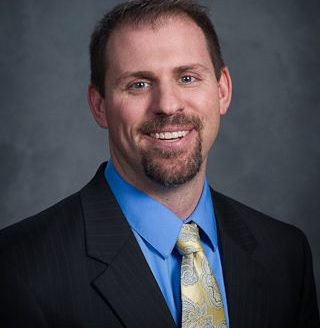Does your ag business need a chief financial officer?

Is there a financial professional on your team?
Like livestock veterinarians, pest control advisors and crop specialists, financial experts have become increasingly important to agribusinesses.
Depending on the complexity and goals of your operation, a chief financial officer or controller can be essential. In today’s tough agricultural environment, there’s no room for mistakes or misinterpretation of your numbers. That’s especially true if you’re focused on growing your operation.
“The bigger you are and the more complex your financial situation, the more you need somebody with financial expertise,” says my colleague Chelsey Bowyer, an accounting services operations manager with Pinion.
If you have various business entities, multiple loans or are buying or selling land, you’ll benefit from bringing a CFO or controller on board. If you’re a family business going through a transition or switching hands, you’ll need someone with financial expertise. If you need someone to analyze the numbers and help you think through where your business is headed, you’re ready for a financial expert.
Controller and CFO: What’s the difference?
I’m not talking about the role of bookkeeper, who typically performs data entry that fulfills daily financial functions, such as paying bills. The CFO and the controller go further than that.
A controller ensures that financial records are accurate, reconciled and routinely closed, ideally on a monthly basis. They oversee the financial checks and balances and confirm the numbers make sense. The controller reports directly to the CFO of the company.
A CFO, on the other hand, does more than crunch numbers. This position is responsible for controlling and managing everything related to finance in a company. A CFO thinks long term about where your business is going and what it will take to get there. He or she forecasts pricing and trends to determine how those will impact your bottom line. They understand the big picture and your vision. Good CFOs produce monthly dashboard reports that display critical information, such as costs, revenues and key performance indicators. That data is key to making informed decisions.
The CFO typically reports directly to the CEO. In many ag operations, the CFO role is often filled by the company owner. But unless you have a degree in accounting or finance—and the time to devote to all financial matters—I don’t recommend most business owners assume the CFO position.
In-house hire or contracted expert?
If you hire a financial professional in-house, you can expect to pay a salary in the $100,000 range plus benefits. That’s a lot of money, acknowledges another colleague, Christin Bolton, manager of Pinion’s strategic advisory team.
One way some ag businesses afford that expense is by dividing the cost among their various entities. A feed yard, for example, might split the pay for a CFO or controller with its grain company and its cattle operation. You could also share CFO or controller costs with another farm or ag operation.
Outsourcing the role of CFO or controller is another option. More and more ag operations are turning to service providers for financial experts. You can outsource the full package of financial capability or contract a more limited service at a lower cost.
What should you look for in a CFO or controller?
A CFO or controller doesn’t have to hold a certified public accountant, or CPA, designation. But a bachelor’s in accounting or finance is a minimum educational requirement. “Anything above that, such as a master’s degree, you’re going to pay for,” Bowyer says.
Experience is key. If you want a financial professional for your feed yard, for example, look for someone with a finance management background in your industry.
“A CFO needs good industry knowledge and the analytical skills to look into the future and come up with ways and methodologies to execute your growth plan,” Bolton says. “The controller has to be that technical person who knows whether the financial statements are solid and reported correctly, that no laws are being broken.”
It may take time to find a good CFO or a controller. That’s largely because accounting for agriculture is a specialized field. But the benefits of having a financial professional on your team can be worth the time and cost of bringing them onboard.
Whether full-time or outsourced, a good CFO or controller will play a critical role in helping you think through the challenges and opportunities your operation faces. It’s worth serious consideration.
Editor’s note: Maxson Irsik, a certified public accountant, advises owners of professionally managed agribusinesses and family-owned ranches on ways to achieve their goals. Whether an owner’s goal is to expand and grow the business, discover and leverage core competencies, or protect the current owners’ legacy through careful structuring and estate planning, Max applies his experience working on and running his own family’s farm to find innovative ways to make it a reality. Contact him at [email protected].
